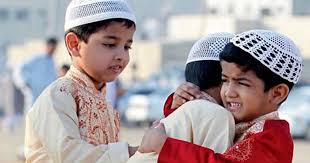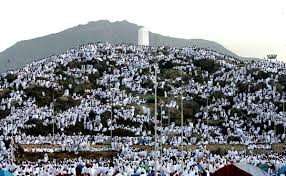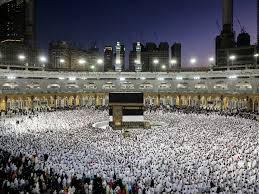Last Prophet, Nabi Rahmat Muhammad Rasoolullah, Hajj sermon, human rights charter, Economic Justice and the Elimination of Exploitation, Protection of Human Life and Property, The First Human Rights Charter: A Paradigm Shift, The Last Prophet’s Last Hajj Sermon and Modern Society, The Last Prophet’s Last Hajj Sermon: A Historic Event, The Principles of Equality and Brotherhood, The Role of Women in Society, Understanding the Plain of Arafat
Table of Content
- Introduction
- The Last Prophet’ Nabi Rahmat Muhammad Rasoolullah Sallallahu alayhi wa Sallam Last Hajj Sermon: A Historic Event
- Understanding the Plain of Arafat
- The Significance of the Last Hajj Sermon
- The First Human Rights Charter: A Paradigm Shift
- The Principles of Equality and Brotherhood
- Protection of Human Life and Property
- The Role of Women in Society
- Economic Justice and the Elimination of Exploitation
- The Last Prophet’s Last Hajj Sermon and Modern Society
- FAQs (Frequently Asked Questions)
- Conclusion
- Introduction The last Prophet, Nabi Rahmat Muhammad Rasoolullah Sallallahu alayhi wa Sallam, gave his last Hajj sermon on 9 Dhu al-Jah, 10 Hijri (7 March 632 AD) in the Plain of Arafat. This historic event holds immense significance in the Islamic faith and beyond. The sermon delivered by Prophet Muhammad (peace be upon him) during his farewell Hajj serves as a timeless guide, embodying principles of justice, compassion, and human rights. In this article, we delve into the details of this momentous event and explore its relevance to modern society.The last prophet, Nabi Rahmat Muhammad Rasoolullah Sallallahu alayhi wa sallam, gave his last Hajj sermon on 9 Dhu al-Jah, 10 Hijri (7 March 632 AD) in the Plain of Arafat. Let’s repeat the main points of this sermon, because our Prophet said, convey these words of mine to others. Prophet Muhammad ﷺ said.
1*. O, people! Listen, I don’t think I’ll be among you next year. Listen very carefully to my words, and convey them to those who could not reach here.
2*. O, people! Just as this day, this month and this place are honourable. In the same way, the life, honour and property of other Muslims are sacred. (You can’t tamper with it).
3*. Return the wealth and trust of the people to them.
4*. Don’t bother anyone, don’t harm anyone. May you also be safe.
5*. Remember, you have to meet Allah, and Allah will question you about your deeds.
6 *. Allah abolished usury, so abolish (forgive) all usury from today.
7*. You have rights over women, and they have rights over you. While they are fulfilling their rights, you fulfil all their responsibilities.
8*. Maintain a gentle attitude towards women, because they are your partners and selfless servants.
9*. Never even come close to adultery.
10*. O, people! Listen to me carefully, worship only Allah, complete the five obligatory prayers, fast in Ramadan, and pay Zakat. If you can, do Hajj.
11 * Do not fall into prejudice on the basis of language, colour, race, black over white and white over black, Arab over foreigner and foreigner over Arab, every Muslim is the brother of other Muslim. You are all equal in the eyes of Allah. Superiority is only due to piety.
12*. Remember! One day you will be present before Allah for the accountability of your actions, be careful! Do not go astray after me.
13*. Remember! No prophet will come after me, nor will a new religion be brought. Understand my words well.
14*. I am leaving two things for you, the Qur’an and my Sunnah, if you follow them you will never go astray.
15*. Listen! Those of you who are there, pass it on to the next people. And then pass it on to the next people. And it is possible that the latter can understand (and act on) my words better than the former.
* Then raised HIS blessed face towards the sky and said*,
16*. O Allah! Be a witness, I have delivered your message to your people.
Note*: May Allah include us among those who listen/read this message and act upon it. And be the one to spread it. May Allah bless us all with the love and Sunnah of the Prophet, peace and blessings be upon him, in this world, and may he gather us with his Prophet, peace and blessings be upon him, in Paradise in the Hereafter, Amen.
- The Last Prophet’s Last Hajj Sermon: A Historic Event
The last Hajj sermon of Prophet Muhammad (peace be upon him) took place on 9 Dhu al-Jah, 10 Hijri, in the Plain of Arafat. This was the final pilgrimage undertaken by the Prophet, and it attracted a large gathering of Muslims from various regions. The sermon served as a culmination of the Prophet’s teachings and guidance, leaving a lasting impact on the Muslim ummah (community).

- Understanding the Plain of Arafat
Mount Arafat: The Peak of Devotion

The Plain of Arafat, situated in the vicinity of Makkah, holds great significance in Islamic tradition. It is believed to be the place where Adam and Eve were reunited after being separated on Earth. During the Hajj pilgrimage, pilgrims gather in this plain to perform a vital ritual known as Wuquf, which involves supplication, reflection, and seeking forgiveness from Allah.
- The Significance of the Last Hajj Sermon
The last Hajj sermon of Prophet Muhammad (peace be upon him) holds immense significance in the Islamic faith. It encapsulates essential teachings and principles, serving as a comprehensive guide for Muslims to follow. The sermon covers a wide range of topics, including human rights, social justice, equality, and the responsibilities of individuals and communities.

- The First Human Rights Charter: A Paradigm Shift
The last Hajj sermon of the Prophet is considered the first human rights charter due to its emphasis on equality, justice, and the protection of human dignity. The sermon addressed the rights and responsibilities of all individuals, regardless of their social status, race, or gender. It brought about a paradigm shift, laying the foundation for a just and compassionate society.
- The Principles of Equality and Brotherhood
In his last Hajj sermon, the Prophet emphasized the principles of equality and brotherhood. He proclaimed, “All mankind is from Adam and Eve. An Arab has no superiority over a non-Arab, nor does a non-Arab have any superiority over an Arab; a white has no superiority over a black, nor does a black have any superiority over a white, except by piety and good action.”
This revolutionary statement dismantled the prevalent notions of racial superiority and established the equality of all human beings. The message of universal brotherhood has since been a cornerstone of Islamic teachings.
- Protection of Human Life and Property
The last Hajj sermon highlighted the importance of protecting human life and property. The Prophet stated, “Your lives and your properties are forbidden to one another until you meet your Lord.” This statement emphasized the sanctity of life and the need to respect and preserve the rights of individuals. It laid the groundwork for the protection of human rights, even in times of conflict.
- The Role of Women in Society
Prophet Muhammad (peace be upon him) also addressed the role of women in society during his last Hajj sermon. He emphasized the rights of women and their importance as equal members of society. The sermon promoted gender equity and discouraged any form of discrimination or oppression against women.
- Economic Justice and the Elimination of Exploitation
The last Hajj sermon also highlighted the importance of economic justice and the elimination of exploitation. The Prophet condemned the practices of usury and unjust financial transactions. He emphasized the significance of fair trade, honesty, and the equitable distribution of wealth. This message remains relevant in the pursuit of economic justice in modern society.
- The Last Prophet’s Last Hajj Sermon and Modern Society
The principles and teachings of the last Hajj sermon hold significant relevance in today’s world. The call for equality, justice, compassion, and the protection of human rights resonates with contemporary issues. The sermon’s emphasis on the elimination of discrimination, the empowerment of women, and economic justice serve as a guide for individuals, communities, and nations striving for a just and harmonious society.
FAQs (Frequently Asked Questions)
Q1: Why is the last Hajj sermon of Prophet Muhammad Rasoolullah Sallallahu alayhi wa Sallam considered the first human rights charter?
The last Hajj sermon is considered the first human rights charter due to its emphasis on equality, justice, and the protection of human dignity. The sermon addressed the rights and responsibilities of all individuals, regardless of their social status, race, or gender.
A1: The last Hajj sermon revolutionized the prevailing notions of superiority and established the equality of all human beings. It laid the foundation for a just and compassionate society, making it the first human rights charter.
Q2: What are the key principles highlighted in the last Hajj sermon?
The last Hajj sermon emphasized principles such as equality, brotherhood, the protection of human life and property, the role of women in society, and economic justice.
A2: The sermon emphasized that all individuals are equal and should be treated with fairness and respect. It stressed the sanctity of life and the need to protect the rights of individuals. It also promoted gender equity and emphasized fair trade, honesty, and the equitable distribution of wealth.
Q3: How does the last Hajj sermon impact modern society?
The principles and teachings of the last Hajj sermon have a significant impact on modern society. They provide guidance on issues related to equality, justice, compassion, women’s rights, and economic justice.
A3: The sermon’s emphasis on equality, justice, and human rights serves as a guide for individuals, communities, and nations striving for a just and harmonious society. It promotes inclusivity, fairness, and the elimination of discrimination.
Q4: Can the teachings of the last Hajj sermon be applied outside the Islamic faith?
Yes, the teachings of the last Hajj sermon can be applied beyond the Islamic faith. The principles of equality, justice, compassion, and human rights are universal values that resonate with people of all backgrounds and beliefs.
A4: The message of the last Hajj sermon transcends religious boundaries and serves as a source of inspiration for individuals and societies seeking to uphold the principles of justice, equality, and compassion.
Q5: What is the significance of the Plain of Arafat in Islamic tradition?
The Plain of Arafat is a significant location in Islamic tradition. It is the place where pilgrims gather during the Hajj pilgrimage to engage in supplication, reflection, and seeking forgiveness from Allah.
A5: The Plain of Arafat holds a special place in the hearts of Muslims as it is believed to be the site where Adam and Eve were reunited after being separated on Earth. It symbolizes humility, repentance, and spiritual rejuvenation.
Q6: How can we apply the teachings of the last Hajj sermon in our daily lives?
The teachings of the last Hajj sermon can be applied to various aspects of our daily lives. We can strive for equality, treat others with respect and kindness, protect the rights of individuals, advocate for social justice, and promote compassion and empathy.
A6: By embodying the principles highlighted in the last Hajj sermon, we can contribute to building a more inclusive, just, and compassionate society. We can make a positive difference in the lives of others and create a harmonious coexistence.
Conclusion The last prophet, Nabi Rahmat Muhammad Rasoolullah Sallallahu alayhi wa Sallam, delivered his last Hajj sermon on 9 Dhu al-Jah, 10 Hijri, in the Plain of Arafat. This historic event holds immense significance as it is considered the first human rights charter. The sermon emphasized principles of equality, justice, compassion, and human rights, setting a paradigm for a just and harmonious society. The teachings of the last Hajj sermon continue to guide and inspire individuals and communities, transcending time and cultural boundaries


